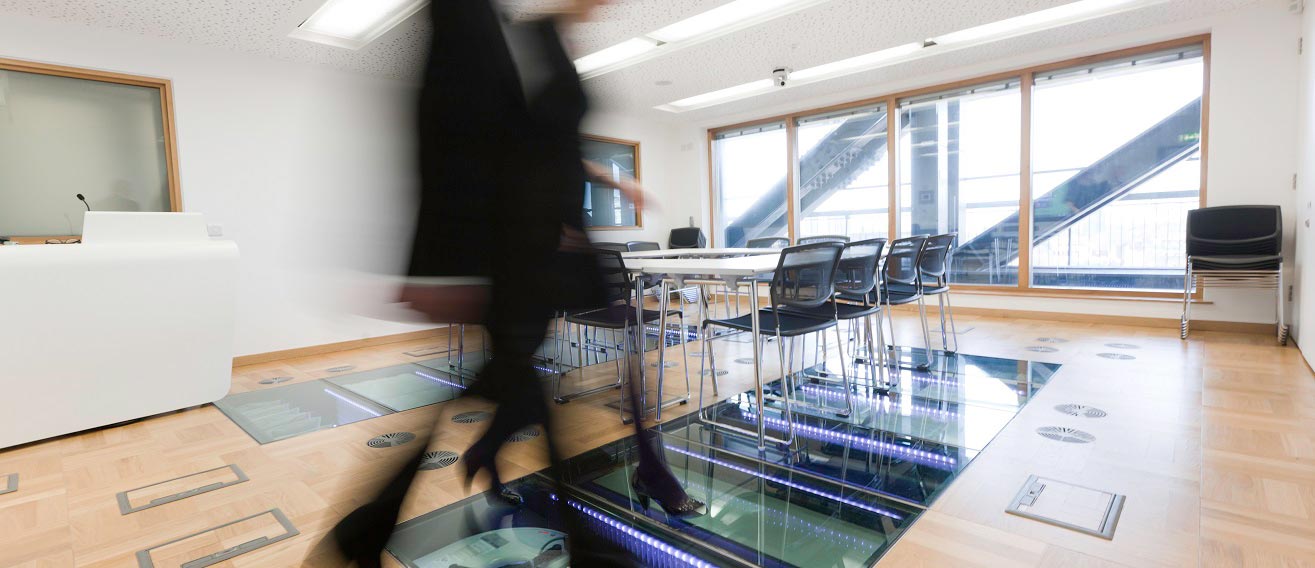
CEREB
UK Centre for Efficient and Renewable Energy in Buildings (CEREB)
CEREB is LSBU's unique teaching, research and demonstration resource for the built environment. Studies show that, currently, buildings are responsible for some 40% of UK carbon emissions, and at LSBU we are playing our part in reducing this high volume of emissions and their negative impact by educating the next generation of engineers and managers who will design, build and operate more sustainable buildings and items of infrastructure. We are also undertaking research leading to results and innovations which, when applied, will reduce emissions.
CEREB, based strategically on the top of the K2 Building on the Southwark campus of LSBU, supports the teaching, research and demonstration of low carbon energy technologies in the built environment.
The £2.8 million centre hosts a number of renewable energy and intelligent energy solutions. Through CEREB, students are exposed to the new technologies which the built environment needs to embrace in order to design, build and manage the operation of, sustainable buildings for the future.
A practical approach to learning
In CEREB, researchers and students have direct access to data from all the technologies providing services to the working building, together with the innovative technologies built into the centre itself. It is also able to showcase developing technologies and to enable the testing or trying out of new products in a real life setting where the results can be closely monitored. These features make CEREB an invaluable resource for understanding how to design, operate and manage technologies for future low carbon buildings – both new build and retrofit. The data from the monitoring systems is available via web interfaces that allow it to be used for collaborative research worldwide. Thus, the centre has an important international dimension. As an example, the management software may show energy flows, whilst on the roof the equipment can actually be seen in action. This makes it much easier to help people, including students and visitors, to understand how the technology works. The facility's flexibility means that as the technology changes, the next generation of renewable energy systems can be analysed and compared.
The future
In future, we plan to build our own Flexible Climate Simulator. With it, we will test and develop new techniques and systems for buildings. These will be in many fields of knowledge: civil/structural engineering, energy, sport science and health. It will allow us to construct full scale and scaled environments to better understand the influence of climate, and be capable of strictly controlling environmental conditions.
You can read about the lessons learned after the first 5 years of running CEREB here.